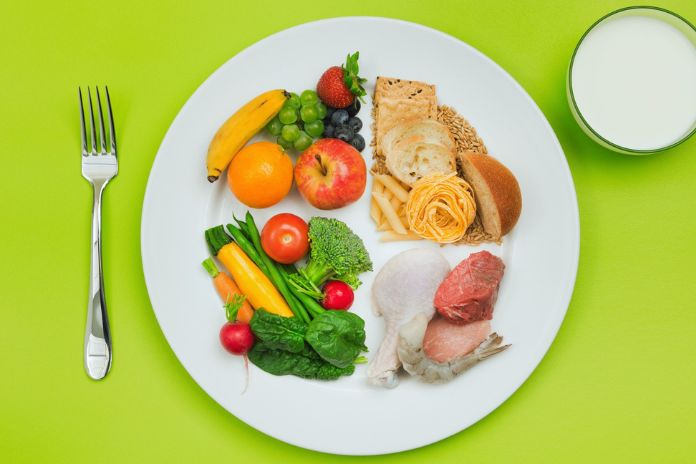Food balance is essential to maintain a healthy organism: everything in excess is harmful! It is necessary to elaborate, according to the needs of each one, a functional menu that invests in specific foods for each moment of the day.
To have a balanced diet, it is necessary to moderate the consumption of some foods and, when necessary, give up those products that may be harmful to health. The human body needs specific nutrients to function properly – the regulated consumption of certain foods, in addition to ensuring the proper development of the organism, is responsible for the feeling of well-being after a meal.
It is very important to take care of food and always be connected to what the body needs so that there is no wear and tear and that diseases are not developed by simple food carelessness. The power to take care of your body is in your hands, and we’ll help you with some tips!
Check now what a balanced diet is and what you should consume to maintain that balance so that your body is always healthy:
What Does Healthy Eating Consist Of?
To meet the body’s natural needs, a balanced diet consists of three basic requirements:
Complete food: a menu containing all types of nutrients, whether they have properties for structural purposes such as proteins, to produce energy such as carbohydrates and fats, and balance functions such as vitamins and minerals.
Healthy food: a menu that discards any exaggeration: the necessary amounts are separated between the different nutrients to avoid any lack or excess.
Varied diet: consists of consuming foods from different sources to ensure the intake of all the essential nutritional bases.
Foods That Can Be Consumed Daily Without Guilt!
According to the World Health Organization (WHO), daily consumption of approximately 400g of fresh greens, vegetables, and fruits brings many health benefits. The WHO states that foods from these groups have properties that help prevent disease, balance the body and make the body work correctly. See some examples:
- Proteins: Proteins act directly on muscle synthesis, ensuring healthy and natural development. They are also a great source of energy for the body and act in hormonal control. It doesn’t matter if the proteins are of animal or vegetable origin; they guarantee the same benefits to the human body. Examples of plant-based proteins: are quinoa, oilseeds, and soy; of animal origin: meat, cheese, and milk.
- Fruits: rich in dietary fiber, fruits support heart health and help balance the intestinal flora. This group greatly emphasizes immunity, as it has a high concentration of vitamin C, which is responsible for strengthening the immune system and keeping it healthy to prevent diseases such as colds and flu. Examples of fruits: are strawberries, bananas, oranges, lemons, plums, grapes, and watermelon, among many others!
- Greens and vegetables: foods rich in minerals such as iron, magnesium, calcium, and phosphorus act directly in preventing anemia, improving brain function, and strengthening bones. Examples: kale, broccoli, sweet potatoes, squash, and spinach.
Foods That Should Be Consumed In Moderation – Once In A While, It’s Okay!
Some foods have high concentrations of nutrients but need to be consumed with great caution, as they carry excessive calories, sugars, sodium, and other harmful substances that can unbalance the body. See some examples:
- Carbohydrates: responsible for generating energy, carbohydrates benefit the heart and brain, but… when consumed in excess, they can lead to considerable weight gain. For example, bread, rice, and pasta do not indicate that a person eats more than 6 grams of carbohydrates per day. One option for those who like these foods is to prefer their full versions, which contain more fiber.
- Coffee: the famous little coffee is present in the food of most of the world’s population. Few people know, but it keeps our immune system healthy, removes bad moods, and gives us the energy to face a busy day. But of course, excesses automatically cut off any benefit! It is indicated that a person drinks 3 to 4 cups of coffee a day, never more than 400 mg of caffeine.
- Chocolate: the much-loved and at the same time feared chocolate is often the first option for desserts and even a “medicine” to ease the symptoms of PMS. Cocoa is a very healthy food because it contains flavonoids, which benefit cardiovascular health and accelerate metabolism. To eat this sweet without guilt, always prefer the bitter version, which contains more cocoa – even so, don’t overdo it!
Foods To Avoid – These Throw Off The Food Balance
Of course, it is very likely that at some point in your life, you will consume some of these foods, but know that the less they are on your menu, the healthier you will be throughout your life. The reason? They inflame the organism and are responsible for the emergence of various diseases. Find out what they are:
- Trans fat: found mainly in ice cream, snacks, margarine, and even pre-cooked and frozen potatoes, trans fat is a villain that raises bad cholesterol levels in the body, considerably increasing the risk of heart disease. Always choose foods with good fats, such as salmon and avocado, or prepare healthier foods.
- Alcohol: people always find an excuse to consume alcoholic beverages without any weight on their conscience: too hot? A little beer goes well; very cold? Nothing like a good wine to warm you up! Drinking from time to time in small amounts is fine, but exaggeration can completely unbalance the organism’s functioning.
- Industrialized foods are one of the biggest villains you can find in the food industry! Industrialized foods are full of chemical additives and preservatives that cause damage to our health and interfere with the absorption of various nutrients.
Also Read: How To Stay Focused On Your Diet? Check Out Five Essential Tips

